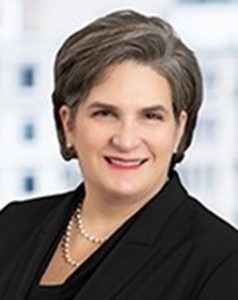MFO’s Elevator Talks serve as a way of introducing you to smart people who (a) we’ve only recently met and (b) we’ve become convinced that you should hear from. In the usual course of events, that translates to a fund manager whose approach seems promising and intriguing but whom we’re still learning about (and from). Elevator Talks aren’t recommendations. They’re invitations: to hear from impressive folks, deepen your understanding of important issues and strategies.
In the normal course of things, we interview fund managers.
Meh, “normal” is overrated.
We are confronting three essentially indisputable truths.
- The global climate is in a rapidly escalating crisis. As we began working on this piece, a “once in a millennium” heat dome encompassed the Pacific Northwest, and temperatures of 118º F (48º C) had reached the Arctic Circle. At the same time, the American Southwest recorded over 300 record high-temperature readings in a single week.
(Right. If it only lasts for a week, it’s “weather.” The patterns underlying it – hotter, drier, with more frequent occurrence of extreme weather events – is “climate.”)
For understandable psychological reasons, some people continue to insist that humans are not the drivers of the change. They are incorrect. NASA maintains a useful page that highlights the state of the scientific and medical community’s research on climate change.
Here’s the short version: we’ve made a mess, and we need to find a way to clean up after ourselves.
- The investor community is counting on private markets to help reduce or mitigate the crisis. Rich Powers, the ETF at Vanguard, reports that “In our conversations, clients continuously bring up the topic.” In a mutual frenzy, the investment industry is rolling out new funds weekly, and investors are committing tens of billions – by some estimates, trillions – of dollars to them. The US Sustainable Investing Forum now estimates that one out of every three investment dollars is committed to sustainable investments; that’s $17 trillion worldwide by their calculation. KMPG claims it’s actually $30 trillion. Bloomberg estimates it will reach $54 trillion by 2025.
Those are big numbers. So big that KPMG has labeled them
 And those are paired with investment vehicles that make all the difference:
And those are paired with investment vehicles that make all the difference:

Sadly, that brings us to our third indisputable truth:
- Those numbers are unreliable, the metrics are rigged, the claims are unverified, and the marketers are adding a green sheen to everything they can reach. With honorable exceptions, of course. In general, though, it’s a jungle out there.
Ask yourself a simple question: how can one reputable source tell us that there were $17 trillion in sustainable investments in 2019 while another, similarly reputable one, declares that it was $30 trillion? Even in today’s world, $13 trillion is not just a rounding error.
Apple Inc. is the largest holding in Vanguard ESG US Stock ETF (ESGV), and the company is worth $2.2 trillion. Does that mean that all $2.2 trillion of Apple’s market cap should be counted as “green” investment, despite the fact that the huge bulk of the money did not come from folks looking for that kind of green? Or do we only count the portion of the funds contributed by ESG-screened funds? But what about funds that invest responsibly without a formal ESG screen? And how can we assess the motivations of private investors? That answers to those questions determine, literally, trillions of dollars worth of nominal ESG investments.
And when it comes to Apple’s “green” credentials, what counts and who counts it? Does a plan to be carbon neutral at some point in the future make an investment green today? If a company says they’re already carbon neutral, do we take their word for it? How would we treat a firm that invests in solar and coal?
To date, the answer has mostly been “close your eyes and pray.”
Or, worse yet, “close your eyes and trust the marketing department.”
That’s changing, in fits and starts. European regulators are trying to actively shape the behavior of corporations; that is, to make them act responsibly. The American strategy is rather more market-sensitive: regulators are trying to find ways to force companies to consistently and reliably disclose … hmmm, well, they don’t yet know what they want them to disclose. Commissioners of the Securities and Exchange Commission agree that the important stuff has to be disclosed; they just can’t agree on what qualifies as “the important stuff.” In technical terms, they can’t agree on what’s “material” to disclose.
Amy Greer and Jennifer Klass can help. Their job is to help their clients – including asset  managers – navigate the quickly evolving rules concerning green disclosure.
managers – navigate the quickly evolving rules concerning green disclosure.
Ms. Greer serves as the co-chair of Baker McKenzie’s North America Financial Regulation & Enforcement Practice, which provides clients with regulatory advice and enforcement counseling. Before joining Baker McKenzie, she served as chief trial counsel at the US Securities and Exchange Commission’s (SEC) Philadelphia regional office and managed a team of lawyers overseeing a wide variety of enforcement matters…
 Jennifer L. Klass serves as the other co-chair of Baker McKenzie’s Financial Regulation and Enforcement Practice in North America. She is an experienced investment management lawyer with a particular focus on investment adviser regulation and regularly represents clients before the SEC. She provides practical advice that is informed by her experience as Vice President and Associate Counsel at Goldman, Sachs & Co., where she represented the asset management and private wealth management businesses. She’s also worked with SEI, which manages, administers, or advises on about $1.2 trillion in assets.
Jennifer L. Klass serves as the other co-chair of Baker McKenzie’s Financial Regulation and Enforcement Practice in North America. She is an experienced investment management lawyer with a particular focus on investment adviser regulation and regularly represents clients before the SEC. She provides practical advice that is informed by her experience as Vice President and Associate Counsel at Goldman, Sachs & Co., where she represented the asset management and private wealth management businesses. She’s also worked with SEI, which manages, administers, or advises on about $1.2 trillion in assets.
She’s also a lot better at Twitter than I am.
We spoke at length in June about the world of greenwashed products, regulatory slumber and modernization, and how to navigate it all. They kindly offered to think a bit about a simple but daunting challenge: what do investors interested in a sustainable portfolio actually need to know just now in order to have the best chance of aligning their portfolios with their intentions? Here’s their advice for both individuals and asset managers.
The attraction of so-called ESG investments is understandable: make money and save the world, all in one fell swoop. But recent statements from the regulators suggest there is more to it, and indeed there is.
Feeling the pressure of competition, both domestically and from foreign multinationals, the latter of which actually may be subject to existing ESG disclosure regimes, many publicly traded companies in the United States are issuing statements and reports describing their efforts to meet their own self-imposed environmental, social and governance goals, but without the benefit of any mandatory regulatory guidance. These U.S. corporate ESG reports sometimes use voluntary third-party standards which attempt to offer some meaningful and objective measures. However, this is not always the case. Often companies merely describe their recent efforts to be better corporate citizens, together with aspirational statements and targets for future goals.
Moreover, investors of all kinds, whether they are institutions deciding on portfolio investments or retail investors, currently have no meaningful way to compare U.S. corporations to one another or to non-U.S. firms. Consistency and comparability of ESG reporting is the stated goal of SEC Chair Gary Gensler in promoting the agency’s adoption of mandatory disclosures on climate risk and human capital, including board diversity. However, the SEC is not going to stop there as the agency’s agenda also includes the creation of new rules for investment companies and investment advisers on ESG factors, including claims, disclosures and marketing.
The lack of standards and the unrelenting pressure of investor interest has placed U.S. public companies and all regulated entities, into a place of real jeopardy, to the extent that any public statements do not match actual events or practices. This mismatch is fertile ground for SEC Enforcement investigations and enforcement actions. We anticipate that the previously announced Enforcement Division Climate and ESG Task Force is zeroing in at precisely these types of issues, using existing tools, like the antifraud provisions and reporting requirements.
ESG competitive pressures also impact a wide variety of regulated entities like asset managers and investment advisers. As a result, these firms also face potential regulatory risk on ESG-related issues – as investors, product manufacturers, and marketers.
The SEC’s Division of Examinations has promised to review whether firms accurately disclose their ESG investing approaches and have adopted and implemented policies, procedures, and practices consistent with their ESG-related disclosures. Regulated entities can expect consideration of portfolio management practices, including their diligence on ESG investments and whether proxy voting decisions are consistent with disclosures on ESG integration. This includes a review of their public and client-facing advertising and marketing and evaluation of compliance programs to ensure that the firms are not ‘greenwashing’ their investment products.
Depending on the nature of our client’s business, we work to evaluate how they can best compete in the ESG space while simultaneously adopting the internal controls necessary to manage regulatory examination and enforcement risk. Whether U.S. public companies or regulated entities, focusing on actual metrics and practices that can be objectively measured and substantiated, rather than generalities, will be a much safer course from a regulatory standpoint. And, for regulated entities, don’t forget the policies and procedures necessary to test your claims and practices.
The Baker McKenzie site is sprawling in a way that puts the Mall of America to shame. Folks interested in learning more might start with the homepages for Amy Greer or Jennifer Klass. Beyond that, they’ve shared their most recent analysis of the SEC’s ESG agenda with you and commend a couple of essays on sustainability in financial institutions from the Baker McKenzie site for your consideration.











